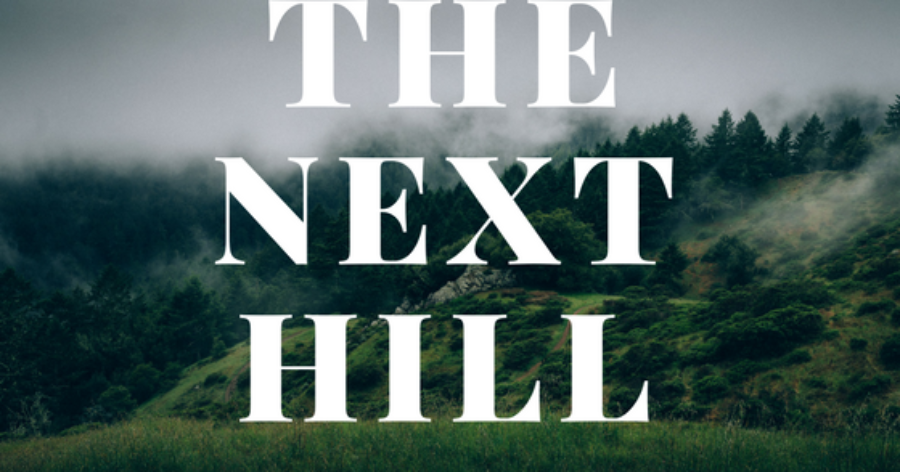Kemo set out through the field. The tall wet grass brushed against his kneecaps as he walked. It was still early; the dew wouldn’t be gone for at least another two hours. Closely behind he could hear Lubos making his way along the path that he had made. Occasionally Lubos stopped to sniff something in the matted down grass before sprinting to keep up.
The air was fresh, much fresher than the air of the city. Here in the mountains, along the river, the black film that shrouded everything in his apartment was nonexistent. He breathed in the smell of it. Pine and pollen, early spring. Everything was new. The breeze was cool enough to force him to occasionally rub his bare arms, yet warm enough that the heat of the direct sun was welcome on such a long trip. The perfect day for one of his walks.
Kemo walked as often as his life permitted. He worked six days a week in order to pay his bills and on the seventh day, if conditions permitted, he simply left the city and headed for the hills.
He let out a long sigh. Just a year earlier he had far more time for these walks. His work permitted it. Now the base at Tuzla, Eagle Base, was closed. All of the friendly NATO countries who had provided help for the last ten years had left, and took with them the jobs. He understood that this had to happen sometime. Once the reconstruction occurred, the forces would be cut back. There was still Camp Butmir, a base open near Sarajevo but that was four hours from his home and besides, all the jobs were taken there as well. Still, that base would one day close and all of those people would be forced to seek other, low paying jobs out in the rebuilt economy.
The people knew that Eagle Base was closing yet held out for as long as possible. Kemo, along with the rest of them ignored the facts, believing that as long as no one spoke a word of the inevitable then surely it could not come. He felt as if he was a child who had done something wrong. Perhaps if he and the other workers said nothing, then their parents would forget the crime, the base would not close.
When the closure finally came he sought to leave the country. His Visa was declined. Too many people had the same idea and Kemo was one of those who were left to jockey for position in Bosnia’s new economy.
It wasn’t the longer hours. Even the lower pay didn’t bother him. He didn’t mind getting dirty in his friend’s garage. Kemo realized that his condition was nothing special; in fact he was even quite lucky compared to several other of his former co-workers on Eagle Base. He had even heard that two of the girls that had occupied the coffee shop had become call girls down at that brothel located in Tuzla’s outskirts.
What he really despised was the lack of meaning that his life seemed to have. He was not his own master. He was, as was everyone around him, a product of a system gone wrong. There were no longer any choices. At least on the base he felt he was a part of something bigger. Even though on the base he simply kept track of a supply warehouse, he knew that it was for something. The job may have been simple but it was important. If the forces needed something for their offices, he would provide it.
He was angry, but at nothing. He was not angry at the war per say. He had come to grips with that a long time ago. The men in his family were all gone. He was young enough to have escaped this. His grandmother dressed him as a girl when he was seven when the Serbs came and raided the village; he was overlooked, thankfully. The women in his family were tough, for this he thanked them always.
What was left over was an inconsolable emptiness that could not be quenched; there was no solution for it, truly. The only thing left to do was continue to work. Hopefully one day he could perhaps own a business. Perhaps he could one day start a coffee shop or a small store of some kind. Something, anything, to allow him to be in the guise of control once again.
Until this dreamer’s day occurs when progress becomes a possibility, Kemo has his walks. This trail that he walked on was both familiar and unfamiliar to him. He had walked it once when he was a small child with his family. He remembered his father delighted in these walks as well.
“Kemo”, his father would say. “You see over there to that mountain top? It looks beautiful. Much better than here, yes?”
Kemo nodded in agreement, both in the past and in the present as he remembered his father.
“We can go there, Kemo. It might not be any better than here, but we can try. When we get there we will look back from where we came and see that now this mountain looks more beautiful.”
Kemo had not been able to walk on this trail since that time due to the mines that were left over after the war. He felt bad for the young people during this time. Not able to feel the joy of the wilderness. This was the magic of a childhood stolen. Children have the wonderful ability to make due during any hardship with their vivid imaginations. Though all of Mother Nature’s splendor was at once cut off to them when the war occurred. Such a source of children’s inspiration cut off, he couldn’t imagine, and yet he knew it too well. At least he had enjoyed seven years of it. Tens of thousands of mines, unmarked, still around to this day. This particular mountain had only just been cleared last year, thirteen years after it was initially mined.
He had to catch up on that which he missed. He walked on, attempting to recapture the uncapturable. He could hear the things that made his walks worthwhile. He heard the trickle of various creeks, fed from melted snow at the top of the mountains, which in turn fed the river. The birds sang a song which he did not understand but he became jealous of. Why were the birds always so happy? Lubos as well, always going from place to place with no worries, contented simply with being. The birds’ song became contemptuous.
One sat on a branch and seemed to follow tree to tree as he walked. It chirped as birds do and continued on, searching for insects. What arrogance.
“Easy for you to say. What are you so happy about anyway? I suppose I would be happy if I could simply” -Kemo jutted his hand into the air towards the horizon- “Woosh, gone.”
Lubos was still following just behind, uninterested in his friend’s pain. Something tickled his nostrils, something caught on the same breeze that made him curious. Deviating from his normal path he ran ahead of Kemo. This behavior was unexpected, however, Kemo, knowing that Lubos did not do such things without cause, followed behind.
At the base of a large tree overlooking a gorge, off the path approximately twenty meters, Lubos sat sniffing. Kemo yelled in a strict tone, “Leave it!”
Kemo meant no offense by the tone, knowing that it was for Lubos’ own good. Once Lubos became sick upon eating those sweet berries one finds in the woods sometimes. This was not something that neither Kemo nor the carpet in his home wished to experience again. Catching up with him, Kemo stopped to see what had taken his companions undivided attention.
Lying just under Lubos’ nose was a perfectly clean, white skull. Upon closer inspection Kemo could see that the skull was undoubtedly human. It was half covered by dirt and leaves. He looked around him as if someone was watching and reached down to touch the skull. He held his breath as he grabbed ahold of the old bone. Dry to the touch, how long had it been here? Who did this skull belong to? He would report this when he went home. Most likely this lone skull had been here for the duration of the last decade. He pulled the skull from its place slowly and stood up.
Something stirred inside of Kemo as he looked into those empty eye sockets. He held the skull in his hands and longed for a life that could not exist for this person. He need not ask why this thing had happened; he was done asking why about these sorts of things. He wished that this person could speak to him. Tell him what it is like to no longer be, tell him if there is some sort of payoff.
Kemo set the skull down reverently atop the same place it had occupied earlier. He said something under his breath and began to walk away. He marked the place on the path with a scrap of cloth and looked towards the area where the skull had been.
“Come, Lubos”, he said. He turned towards the skulls resting place and as his eyes misted over slightly he said aloud, “I’m sorry,” before continuing up the path.
He walked on, unable to enjoy the scenery around him. Why had that single skull upset him so? There were so many more losses with much closer ties to him. There was no reason for him to feel so strongly about this stranger. This inexplicable sadness came over him and weighed heavily upon him as he trod on.
Kemo knew in his heart of hearts that things were not getting easier. Certainly unless something which Kemo could not fathom happened, he and all of the others he knew would be trapped in this choiceless system. There must be more than just survival! Perhaps if he fell in love. Perhaps if he had a better job. These things could possibly answer his needs but in this particular moment they seemed equidistant.
As Kemo reached the peak he sat down and drank water from his canteen. He gazed out at the mountains. Their beauty was now empty. Their vastness now represented the unattainable. “What is the point?” He allowed Lubos to drink from his canteen as well. “Would all this be easier if I were not here?
Things do not get easier. Things do not, will not get better. Things were better when I was younger. I did not have to worry about these things.”
Lubos licked his bare arm. Kemo did feel better because of this. He made eye contact with Lubos and imagined Lubos’ response. “Things were not better then. You’re right, things do not get easier. Things are what they are. It may be easier for you without you, but who will feed me if you are gone?”
Kemo looked around. Lubos was right. It wasn’t better in the past. He looked out at the horizon, the same way he had a thousand times before. He looked out and remembered a time when he was happier. Nostalgia provided powerful delusion. He shook his head, the memory he had was not a true memory, but a feeling of a time that never existed. He created it to atone for his feelings of hopelessness. As a younger man he would look towards the horizon in the same fashion, always remembering a time when things were better.
He knew this but pressed on as it was what he enjoyed. Standing up he looked to the next mountain top. “Look how beautiful it is there. I think I will go.” He smiled and called to Lubos who was spreading himself on a rock as a lizard would, soaking in the Sun’s beams. “Come, Lubos.”
Together they made their way down the next trail. Kemo realized that in his walks he found meaning. He was searching, and the search itself was enough. Always searching for something better and remembering something better, never quite capturing or recapturing that which he sought. Unsatisfied in a satisfying pursuit. Isn’t this how all things should be though?




